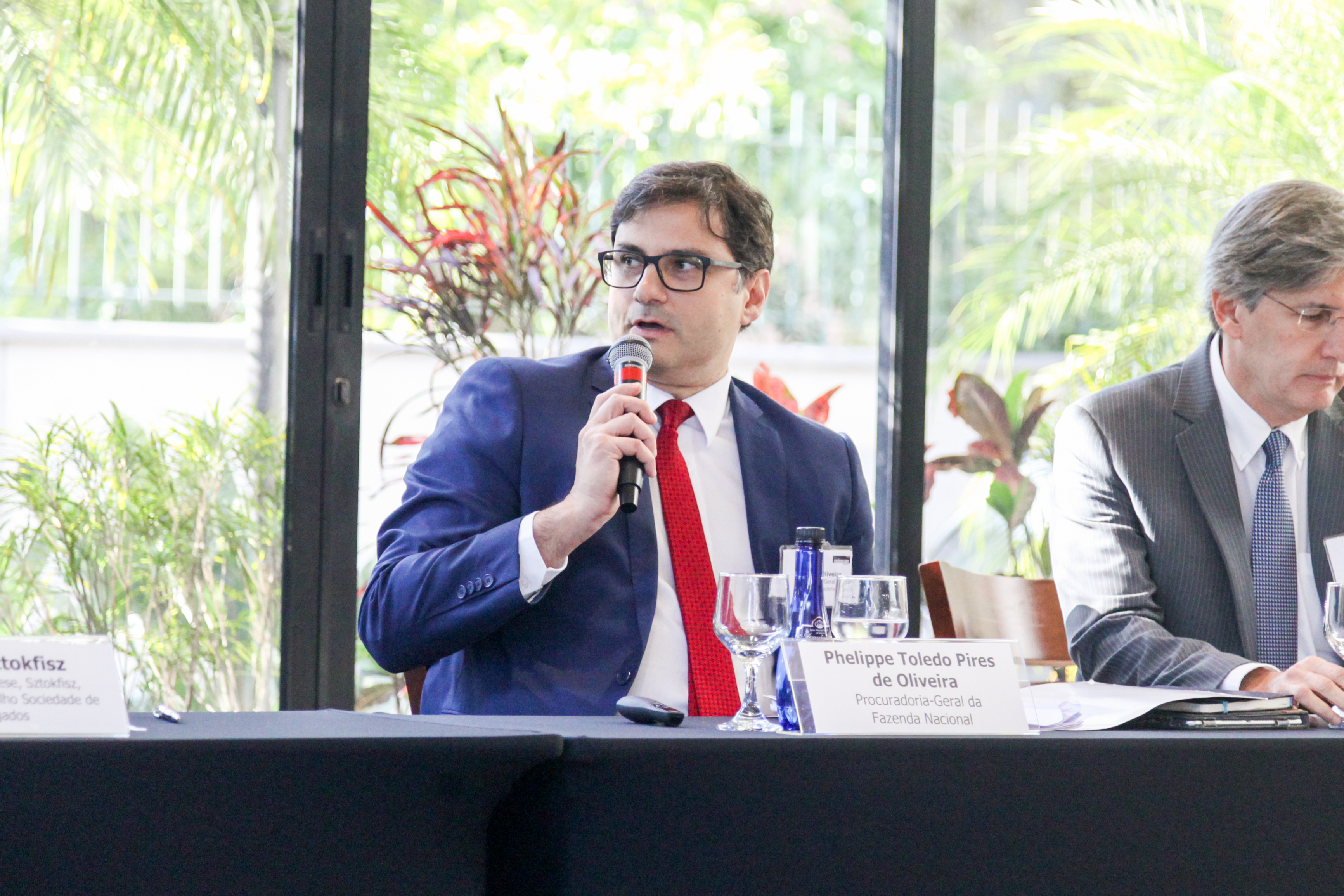On August 29, we had the pleasure of inviting Phelippe Oliveira, Office of the Attorney General for the National Treasure for Tax and Social Security Consulting, to attend a panel alongside Cassio Sztokfisz, Partner of Schneider, Pugliese, Stztokfisz, Figueiredo and Carvalho Advogados and Rafaela Kireeff, Country Legal Head of Novartis. We discussed the tendency to criminalize non-payment of taxes.
The table mediated by our Legal Coordinator, Gustavo Stüssi Neves, brought different views of each guest on the subject. Questions were raised as to how criminalizing tax conduct can inhibit taxpayers who do not pay their taxes intentionally, but at the same time as the separation of legal personality can bring harm to business managers.
To what extent can taxpayers be penalized? How to differentiate intentional fraud from administrative errors?
Phelippe Oliveira brought the view of the Attorney General of the National Treasury and used as examples the STF Binding Precedent 24 and the recent decision of the STJ, which considered a crime of misappropriation not to pay declared values of ICMS. “I see a change of mindset in the legal environment, today we want to show that it is no longer advantageous for taxpayers to postpone the payment of declared amounts. There are many honest business owners who end up not paying taxes for internal company mistakes. But unfortunately, we are faced with cases of structured fraud, of frequent debtors. Many companies are accustomed to continually resorting to process decisions, but now there is a new interpretation that is believed to first justify and then appeal. Our goal is not to let debts accumulate”.
However, Cassio Sztokfisz disagreed that criminalization is the best way to encourage tax payments: “Businessmen are concerned about criminalizing the tax notice. Federal Revenue Ordinance No. 1750 already provides for tax representation for criminal purposes regarding crimes against the tax order. When the taxpayer declares unpaid taxes it is as if he creates evidence against himself, it makes no sense. No supervision is done, only the system of the Federal Revenue of Brazil is used as a basis. I believe there is a hyperextension of the penalty. ”
Rafaela Kireeff, Country Legal Head of Novartis, questioned the joint responsibility of managers and administrators: “Companies need individuals to exist, they need someone to sign documents. However, managers are afraid of being responsible for past management infractions. Not even in his management can the administrator control all the activities of a company. It is a big risk. Tax laws are complex and difficult to understand. It’s normal for a company to go wrong. ”
The interpretation of this issue is quite controversial, but fundamental for the economic development of the country. Phelippe de Oliveira recognizes that companies make the state machine work. “There is a concern of the government to have a broader and less taxing vision.”
For this reason, events such as these are extremely important in bringing private and public authorities closer together. Indeed, the debate was very enriching and fostered a connection between SWISSCAM associates and the federal administration for a rich exchange of ideas.










